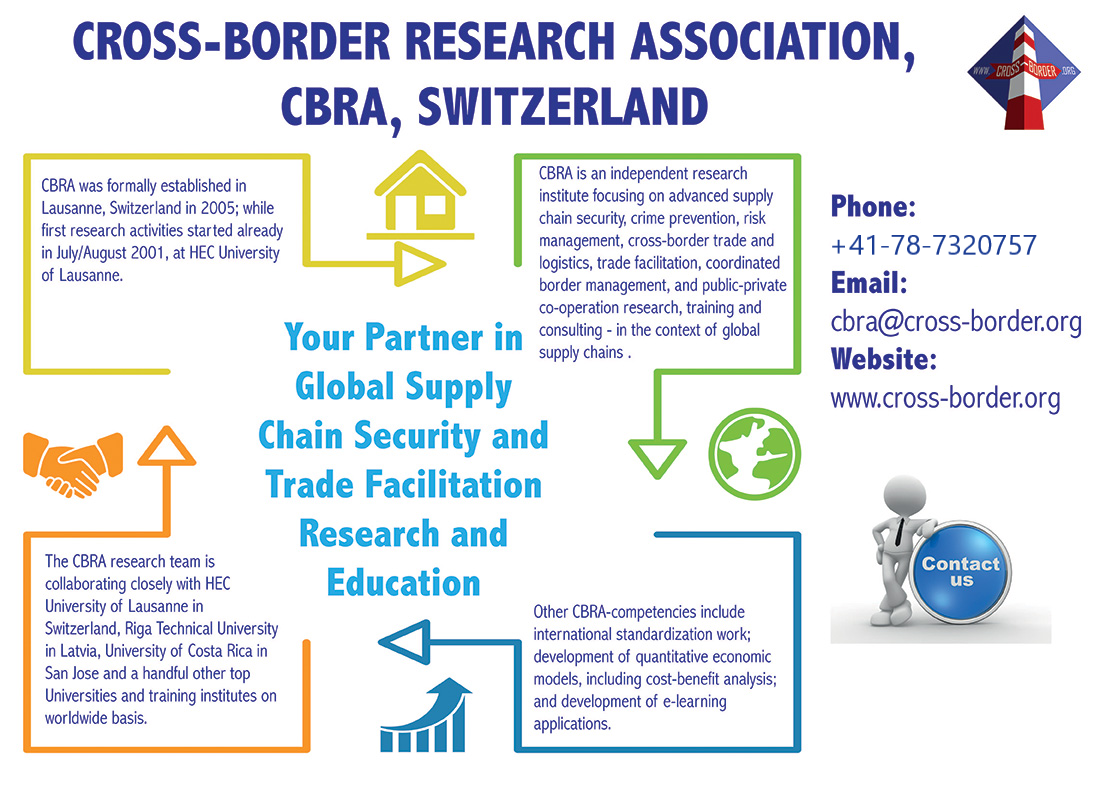CBRA Overview
Cross-border Research Association, CBRA, was founded in 2005, as a spin-off research institute from University of Lausanne, Switzerland, where the CBRA founder was doing a doctoral thesis titled “Post-2001 supply chain security & its impacts on the private sector”. CBRAs research activities focus mainly on supply chain and transportation security; customs and border management security; and, global trade facilitation. All in all, CBRA has played a role in around 40 RDI (research – development – innovation) projects and published nearly 100 articles, reports and posters since 2005. CBRAs roles across these RDI-projects include core research (case studies, surveys, cost-benefit analysis, literature reviews etc.); risk management; optimization and simulation models and tools; development of advanced e-learning materials (in customs data analytics, statistics etc.); innovation intermediary work; standardization, policy development and dissemination work; as well as project coordination work (following drive-administer-serve -principles). A common mandate for CBRA is to act as a research facilitator between supply chain and governmental stakeholders, understanding in detail the security and facilitation related objectives, requirements, constraints and bottlenecks for all parties. The CBRA team consists of leading academic and practitioner experts in supply chain and customs security as well as in trade facilitation. The CBRA academic team consists of seasoned PhDs, post-docs and other senior researchers; while the CBRA practitioner team consists of former customs, law enforcement and security research policy experts in Europe and globally.
Examples on EU Framework programme projects (2008-2025) include: INTEGRITY, LOGSEC, CASSANDRA, FOCUS, CWIT, SAFEPOST, SYNCHRO-NET, CORE, PROFILE, ARESIBO, PEN-CP, MELCHIOR, PARSEC, CONNECTOR and BORDERLINK.
Keywords: #SupplyChainSecurity #TransportSecurity #BorderSecurity #CustomsSecurity #CustomsInnovation #CrossBorderLogistics #TradeFacilitation #BorderAgencyCooperation #TrustedTraderPrograms #RiskManagement #CrimePrevention #IllicitEconomicModels #eLearning




